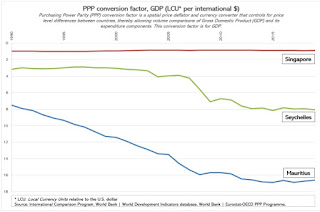New normal = ankor béton mam?
Omnicane , fortement endetté auprès des banques, a récemment conclu un accord avec la Mauritius Investment Corporation Ltd (MIC) pour céder ses terrains, d’un total de 185 hectares dans Mon-Trésor Smart City ainsi que dans la région de Britannia et MonTrésor, pour un montant largement surévalué selon les spécialistes du secteur de l’immobilier de Rs 4,5 Mds – soit l'argent des citoyen(ne)s. Et dans la foulée, le Ministre des Finances annonce un boom dans le secteur de la construction. Essayons de voir plus clair. Le Mauricien rapporte que « Omnicane se réjouit des mesures annoncées dans le budget concernant la rémunération de la bagasse, l’élimination du charbon avant 2030, entre autres. Il compte se positionner stratégiquement dans le sucre, l’éthanol et l’énergie verte. » Ainsi donc, un des major players se retire du secteur de l'immobilier dans un scénario typiquement du genre too-big-to-fail et privatising-profits-and-socialising-losses . D’autre part, depu...
